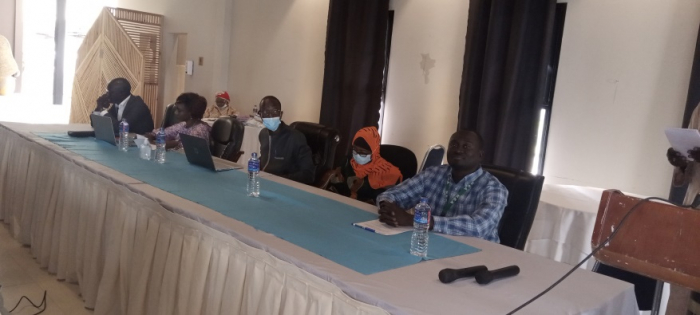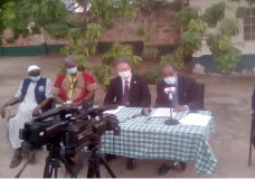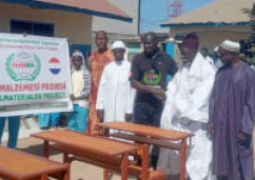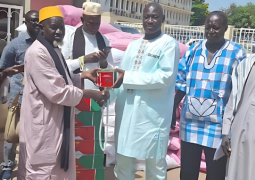
Speaking at the forum, Mamour Alieu Jagne, project director for Roots project, dwelled on the importance of the event, further stating that at the national level, ‘this is the final stage before the operationalization of the GEF supported component of the roots project which is the INLAMAG’.
The INLAMAG, he added, will bring the environment and climate friendly dimension to the roots project. “Therefore, we are very keen to see its finalization and to move to the next step which is the implementation. We are also very keen to see how exactly INLAMAG interfaces with the various components or intervention of the root projects.”
Deputy permanent secretary at the Ministry of Agriculture, Fatou Jammeh-Touray, thanked IFAD for their longstanding support to the agriculture and natural resource sector of the country.
“With the calibre of experts in this hall, I am quite optimistic that the document in front of us will be definitely and technically scrutinised with a view to making it the best document ever.”
“I am also optimistic that the documents after validation, will be implemented as expected with a view to help averting the negative effects of climate change on our farmers and to improve their lives and livelihoods.”
Babucarr Zaidi Jallow, director Central Project Coordination Unit under the Ministry of Environment, Climate Change and Natural Resources, revealed that around the world, and particularly in African countries already suffering from poverty, the looming menace of climate change poses an additional and increasingly prominent threat to achieving and sustaining development.
“If left unchecked, the effects of climate change, warming and environmental degradation further compound other socio-economic drivers or become additional security risks. This is manifested through increased local resource competition, trans-boundary natural resource and water loss, extreme weather events, disasters, and livelihood insecurity.”
In some communities, Mr. Jallow added, women lack adequate access to financial resources, face higher risks and greater burdens from the impacts of climate change as land is the fundamental resource which ensures their livelihood as the primary food producers, particularly in rice production and in horticulture.
“Many regions in The Gambia are prone to the devastating impacts of climate change and over the years, communities in these regions have lost their income and livelihoods as a result of saline intrusion into the farms, erratic rainfall patterns, and a general decline in agricultural production. This has resulted in vulnerable households multiplying, increasing the burden of budgetary support by the government and partners.”
The project through its components, he outlined, seeks to support agriculture and rangeland systems using sustainable land management practices to improve agro-ecosystem services, food production and livelihoods.
“If successfully implemented, this would lead to a significant improvement in our existing institutional capacities, and further enhance cross sectoral and governance mechanisms for mainstreaming of Sustainable Land Management (SLM) and Land Degradation Neutrality (LDN).”
For his Part, Njagga Touray, director of Inter-sectoral Services at the National Environment Agency (NEA), said in many areas of The Gambia, the degradation of land is occurring at advanced stages, while claiming that the root causes of land degradation include inappropriate land use, unsustainable agricultural practices among others.
“While efforts have been made at different levels to address some of the threats to sustainable use and management of land in The Gambia, success still remains a challenge due to a number of barriers including inadequate land use and land right policies and lack of institutional capacity for land use planning and absence of planning processes and local capacities to enable the integrated application of sustainable land management measures among others.”





